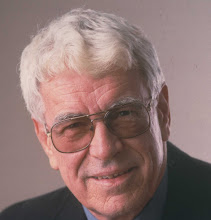Halifax Sunday Herald column, November 18, 2007
Jean Chretien was playing golf with a cardiologist when he complained that he had a bit of discomfort in his chest.
“You'd better come and see me,” said the cardiologist. But Chretien finished the golf game, attended a cocktail party, and didn't go to the Montreal Heart Institute till the next morning, when his chest pain had become severe.
No wonder. All his coronary arteries were partially blocked, and he was poised for a massive heart attack. But Dr. Michael Pellerin did a quadruple by-pass, and Chretien should make a full recovery.
Chretien's story illustrates both what's right and what's wrong with our handling of heart problems. If patients get expert help within the “golden hour,” the brief interval at the beginning of a heart attack before the heart muscle begins to die, then our doctors can perform miracles, as they did with Chretien.
If patients don't get help fast, however – and only about 10% do – their hearts can be severely or fatally damaged. But most people – like Chretien – don't want to believe that they're having a heart attack. They don't want to cause a big fuss and scare their families over what may be a bout of indigestion. We would, literally, rather die than look foolish.
Believe me, I know. When my chest felt strange one July evening in 2006, I didn't call 911. I waited till the morning, and then – second dumb decision – I didn't call an ambulance. I got Marjorie to drive me to the hospital.
“Suppose you'd really been stricken in the car,” the ER doctor scolded me. “What's your wife going to do? Stop and administer CPR? Keep going to the hospital? Panic? What if she's stuck in traffic? She doesn't have a siren, or oxygen. She can't radio ahead. Next time, call 911 and get an ambulance.”
The average time between the onset of symptoms and calling 911, says a Mayo clinic cardiologist, is 111 minutes. That hasn't changed in 10 years. And at least 50% of patients, like me, don't call an ambulance. Some head for the hospital on foot.
The astonishing truth is that we know enough about the prevention and treatment of heart attacks that we could almost eliminate them. But heart disease remains a major killer. Why? First, victims wait too long to get help. Second, half of all heart patients eventually stop taking their drugs. Patients simply don't accept that they will need medication for the rest of their lives – particularly aspirin, which reduces the clotting that causes heart attacks and strokes.
It's easy to understand. You improve your diet, start exercising, get yourself in shape. You look good, and you feel good. So you don't need the drugs any more, right?
Wrong. Indeed, dead wrong.
I don't want to sound too sanctimonious. I'm faithful about my pills, and I'm careful with my diet. And I amble along the shore for about a kilometer a day – which is not enough, but is better than I used to do.
That said, the failures are not altogether the fault of the patients. Doctors don't always communicate well – so patients often don't understand that aspirin and Lipitor are forever. And then there's the little matter of knowing that you're having a heart episode.
In a heart attack, you don't clutch your chest and fall over. Instead, you feel pressure, heaviness, shortness of breath, perhaps an ache. Sometimes the sensation spreads to the arms, neck or back. In women, especially, it often spreads to the jaw – a fact that few women know. People may break out in a sweat, or experience sudden feelings of great anxiety, or have blue lips or hands or feet. Diabetics often have “silent heart attacks” with no symptoms at all except a sudden sense of complete exhaustion.
The symptoms of a heart attack are so varied and diffuse that they're hard to identify, even for the victim. So it's just too glib to say, “get medical help immediately.” If I knew I was having a heart attack, I'd call 911 in a trice. But how would I know?
Here is a place where medical research could make a huge advance fairly easily. What we need at least as much as another drug is a reliable test to confirm that a heart attack is taking place.
In my own case, I didn't think I was having a heart attack. Then I thought I was. Now, ironically, the cardiologists aren't so sure. I have no heart symptoms. I definitely have blockages in my heart arteries, but recent tests show the heart functioning very well. Maybe I had a muscle spasm, or indigestion.
But if even the cardiologists can't tell, how can the patient possibly know?
I'm not quitting the pills or the diet, and I'll try to do better about exercise. Next time I suspect a heart attack, I'll take no chances. But it really would be better to know.
-- 30 --

No comments:
Post a Comment